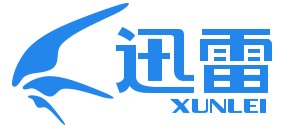Related Research Articles

Akamai Technologies, Inc. is an American delivery company that provides content delivery network (CDN), cybersecurity, DDoS mitigation, and cloud services. Headquartered in Cambridge, Massachusetts, it operates a worldwide network of servers whose capacity it rents to customers running websites and other web services.

KDDI Corporation is a Japanese telecommunications operator. It was established in 2000 through the merger of DDI, KDD (ケイディディ), and IDO. In 2001, it merged with a subsidiary named Au, which was formed through the merger of seven automotive and mobile phone companies from the DDI-Cellular Group. As of 2020, it is the second-largest mobile telecommunications provider in Japan in terms of the number of contracts, following NTT Docomo.

AARNet provides Internet services to the Australian education and research communities and their research partners.

A content delivery network or content distribution network (CDN) is a geographically distributed network of proxy servers and their data centers. The goal is to provide high availability and performance ("speed") by distributing the service spatially relative to end users. CDNs came into existence in the late 1990s as a means for alleviating the performance bottlenecks of the Internet as the Internet was starting to become a mission-critical medium for people and enterprises. Since then, CDNs have grown to serve a large portion of the Internet content today, including web objects, downloadable objects, applications, live streaming media, on-demand streaming media, and social media sites.

Savvis is a subsidiary of Lumen Technologies that sells managed hosting and colocation services headquartered in Town and Country, Missouri. The company owns more than 50 data centers spread across North America, Europe, and Asia and provides information technology consulting. Savvis has approximately 2,500 unique business and government customers.
Speedera Networks, founded in 1999, was a content delivery network (CDN) company that emerged in the late 1990s to advance technology applications for Internet communications and collaboration and became the first CDN to turn a profit. In June 2005, Akamai acquired Speedera Networks.

Emirates Integrated Telecommunications Company P.J.S.C., commercially rebranded as du (دو) in February 2007, is one of the two main telecom operators in the United Arab Emirates. du offers fixed line, mobile telephony, internet and digital television services across the UAE. It also provides carrier services, a data hub, internet exchange facilities and satellite service for broadcasters. It expanded its services in support of economic and social transformation of UAE and operates subsidiaries such as EITC Investment Holdings Limited, Edara, Smart Dubai Platform Project Company LLC and EITC Singapore PTE. LTD.

Xunlei Limited is a Chinese multinational technology company and an online service provider founded in 2003. The subsidiary of Xunlei Limited, Shenzhen Xunlei Networking Technologies, Co., Ltd. was formerly known as Sandai Technologies (Shenzhen) Inc. and changed its name to Shenzhen Xunlei Networking Technologies, Co., Ltd. in May 2005. Its headquarters are in Nanshan District, Shenzhen.
Amazon CloudFront is a content delivery network (CDN) operated by Amazon Web Services. The content delivery network was created to provide a globally-distributed network of proxy servers to cache content, such as web videos or other bulky media, more locally to consumers, to improve access speed for downloading the content.

ChinaCache, Inc. is a Chinese company that provides Internet content and application delivery services. It was founded in 1998 by Song Wang.
Internet censorship circumvention, also referred to as going over the wall or scientific browsing in China, is the use of various methods and tools to bypass internet censorship.
Imperva Incapsula is an American cloud-based application delivery platform. It uses a global content delivery network to provide web application security, DDoS mitigation, content caching, application delivery, load balancing and failover services.
Content delivery network interconnection (CDNI) is a set of interfaces and mechanisms required for interconnecting two independent content delivery networks (CDNs) that enables one to deliver content on behalf of the other. Interconnected CDNs offer many benefits, such as footprint extension, reduced infrastructure costs, higher availability, etc., for content service providers (CSPs), CDNs, and end users. Among its many use cases, it allows small CDNs to interconnect and provides services for CSPs that allows them to compete against the CDNs of global CSPs.
Cloud load balancing is a type of load balancing that is performed in cloud computing. Cloud load balancing is the process of distributing workloads across multiple computing resources. Cloud load balancing reduces costs associated with document management systems and maximizes availability of resources. It is a type of load balancing and not to be confused with Domain Name System (DNS) load balancing. While DNS load balancing uses software or hardware to perform the function, cloud load balancing uses services offered by various computer network companies.
Dynamic Site Acceleration (DSA) is a group of technologies which make the delivery of dynamic websites more efficient. Manufacturers of application delivery controllers and content delivery networks (CDNs) use a host of techniques to accelerate dynamic sites, including:
Mumbai Internet Exchange is a subsidiary of the German Internet exchange point (IXP) DE-CIX, founded on 15 August 2014 as Mumbai Convergence Hub as an Open Carrier Neutral Internet Exchange & Peering Hub. As of 30 March 2021 it interconnects more than 375 members, making it the largest IXP in India and surrounding region.

Domain fronting is a technique for Internet censorship circumvention that uses different domain names in different communication layers of an HTTPS connection to discreetly connect to a different target domain than that which is discernable to third parties monitoring the requests and connections.
Wangsu Science & Technology Co., Ltd. is a China-based company that provides content delivery network (CDN) and Internet data center (IDC) services. It was founded in 2000 and listed on the Shenzhen Stock Exchange in 2009.

Fastly, Inc. is an American cloud computing services provider. It describes its network as an edge cloud platform, which is designed to help developers extend their core cloud infrastructure to the edge of the network, closer to users. The Fastly edge cloud platform includes their content delivery network (CDN), image optimization, video and streaming, cloud security, and load balancing services. Fastly's cloud security services include denial-of-service attack protection, bot mitigation, and a web application firewall.
EDNS Client Subnet (ECS) is an option in the Extension Mechanisms for DNS that allows a recursive DNS resolver to specify the subnetwork for the host or client on whose behalf it is making a DNS query. This is generally intended to help speed up the delivery of data from content delivery networks (CDNs), by allowing better use of DNS-based load balancing to select a service address near the client when the client computer is not necessarily near the recursive resolver.
References
- ↑ "South Korean CDN CDNetworks Raises $96.5 Million To Fuel International Expansion". Gigaom. December 20, 2007. Archived from the original on December 8, 2015. Retrieved December 7, 2015.
- ↑ "CDNetworks Buys Smaller CDN Rival Panther Express". CBS News. February 25, 2009.
- ↑ "Japanese Telco KDDI Buys Content Delivery Network CDNetworks For $167 Million". Techcrunch. October 21, 2011.
- ↑ "Content Delivery Specialist Goes Global with $186 Million Purchase". Caixin Global. February 23, 2017.